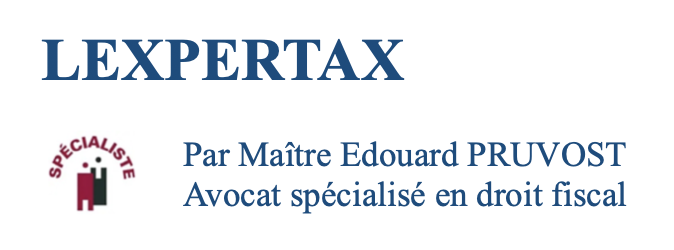Business transfer
Transferring a business is a highly complex situation for entrepreneurs.
This crucial step in the life of a business requires navigating many rules in both company law and tax law. The former involves drafting several documents subject to strict formalities, while the latter establishes various taxation regimes. Additionally, numerous exemptions, deferrals, or postponements of taxation exist.
To better understand business transfer, the following discussions cover the main legal and tax aspects of such an operation, as well as the structures of business transmission.
The Taxation of Business Transfer
It is important to distinguish between transfers for consideration and transfers by gift.
– Transfer for Consideration of the Business
Transfer for consideration of an individual business
In principle, the sale for consideration of an individual business falls under the taxation of professional capital gains.
In a very simplified manner, short-term capital gains are treated as income and are therefore subject to the progressive scale. Long-term capital gains, on the other hand, are subject to a flat rate of 12.8% (plus 17.2% in social security contributions).
However, various mechanisms within the General Tax Code (hereinafter GTC) exist to reduce the tax cost of selling an individual business.
- Turnover-based exemption under Article 151 septies of the GTC: If the seller has operated the business for five years, an exemption from the entire capital gain is possible if the turnover does not exceed €250,000 excluding tax for sales activities and €90,000 excluding tax for service activities. Beyond these thresholds, a partial exemption is possible if the turnover does not exceed €350,000 excluding tax for sales activities and €126,000 excluding tax for service activities.
- Exemption based on the value of the transferred assets under Article 238 quindecies of the GTC: Under the same conditions of professional exercise and duration, an exemption from short-term and long-term capital gains is possible if the sale price does not exceed €300,000, excluding real estate. This exemption will be partial if the value of the transferred assets is between €300,000 and €500,000. Note that this exemption does not apply to real estate.
- Exemption for retirement of the director under Article 151 septies A of the GTC: Similar to the previous regimes, if the seller has operated the business for at least five years, they can benefit from an exemption from the capital gain on sale in the case of retirement. Once again, this exemption does not cover real estate assets.
Regarding real estate assets used by the business, long-term capital gains benefit from a 10% deduction per year of ownership from the fifth year, as per Article 151 septies B of the GTC.
Transfer for Consideration of a Company Subject to Corporate Tax
By the transfer of a company, it is actually meant the sale of the company’s shares. In this case, the capital gains on the sale of shares will be taxed according to the rules for capital gains on securities.
Since January 1, 2018, capital gains on securities are subject to the flat-rate withholding tax (hereinafter PFU) of 30%, i.e., 12.8% income tax and 17.2% social security contributions.
It is possible to opt for the taxation of these capital gains at the progressive scale.
Such an option will allow for the application of the holding period reductions on the sale of shares acquired before January 1, 2018:
- 50% between two and eight years of holding,
- 65% beyond eight years.
There are also enhanced reductions applicable to the sale of shares in small and medium-sized enterprises (hereinafter SMEs) less than 10 years old:
- 50% for shares held for at least 1 year and less than 4 years;
- 65% for shares held for at least 4 years and less than 8 years;
- 85% for shares held for at least 8 years.
Whether the capital gain is subject to the PFU or the progressive scale, SME directors who retire benefit from a €500,000 reduction.
There are mechanisms to defer the taxation of capital gains, especially in certain share exchange transactions. The two main mechanisms are:
- Deferral of taxation under Article 150-0 B of the GTC:
An automatic deferral of tax applies to capital gains and losses resulting from certain share exchange transactions. This includes the contribution of shares to a company subject to corporate tax provided that the recipient company is not controlled by the contributor.
However, to benefit from the deferral of tax, the contribution of shares must not result in the payment of consideration exceeding 10% of the value of the shares contributed.
- Deferral of taxation under Article 150-0 B ter of the GTC:
Capital gains realized on contributions of shares to companies controlled by the contributor are excluded from the deferral of tax, but they still benefit from the automatic deferral regime.
Deferral of tax ends in the event of a sale for consideration of the shares received in exchange. It also ends if the receiving company sells the contributed shares within three years, unless the funds are reinvested in an economic activity. The deferral will also end if the contributor transfers their tax residence out of France.
There is a notable difference between these two mechanisms. In the case of deferral, taxable capital gains, and thus the holding period reductions, are determined at the time of the event ending the deferral. In contrast, in the case of tax deferral, the taxable capital gain is calculated from the contribution of the shares, but it will only be taxed in the event of an event ending the deferral.
– Transfer by Gift of the Business
The transfer of the business or company shares is subject to gift tax. The amount of the tax will depend on the family relationship between the donor and the donee. The applicable rates are provided in Article 777 of the GTC.
There is a mechanism to reduce gift tax in the event of the transfer of a business or company by gift or inheritance.
This mechanism is called the “Dutreil Pact” and is provided for in Article 787 B of the GTC. It allows for a 75% exemption from gift tax in the event of a gift or inheritance, subject to a commitment to retain the shares.
This mechanism applies to the shares or stocks of companies engaged in industrial, commercial, artisanal, agricultural, or liberal activities.
The conditions for the application of such a regime are as follows:
- First, the partners must make a collective commitment to hold for two years, covering at least 17% of the financial rights and 34% of the voting rights (for unlisted companies),
- Then, at the time of the transfer, the collective commitment gives way to an individual commitment to hold for four years,
- Finally, one of the partners who made the collective commitment, or one of the heirs or donees who made an individual commitment, must hold a management position in the company during the collective commitment and three years after the transfer.
Different Forms of Business Transfer
There are many legal and tax structures surrounding business transfers.
We will present to you some structures that have become important among entrepreneurs:
- The LBO “Leveraged Buy-Out”: This structure allows the acquisition of a company through a Holding company. The French translation of this structure is “buyout with leverage,” which involves three levers. First, there is financial leverage: the interest of the structure lies in the use of loans to finance the acquisition of shares, which will be repaid with the profits generated by the target company. Then comes the tax leverage: this involves setting up the Parent/Subsidiary regime or tax consolidation, which allows for the upward flow of profits to the Holding company with reduced tax friction. Finally, the legal leverage allows the investor to control the operation by holding only 50% of the Holding company.
- The OBO “Owner Buy Out”: This structure is a variant of the LBO. It allows an entrepreneur to buy back their own company through a Holding company. The advantages are similar to those of LBOs.
- The FBO “Family Buy Out”: This structure is also called the family LBO. It allows for anticipating the transfer of the company within the family group by combining the early donation of shares and their repurchase by a family Holding company.
Why Use a Tax Lawyer for Business Transfer?
The rules surrounding business transfers are numerous and complex. They require expertise in various areas of law.
Therefore, it is recommended to seek the assistance of a tax lawyer to avoid the tax pitfalls of such an operation, and that of a lawyer specializing in corporate law to comply with the formalities of various acts.
The tax lawyers at LEXPERTAX are experts in all areas of taxation, especially in the field of business transfers and corporate law.
We are committed to assisting you at all stages of the transfer of your business, both legally and fiscally.
LEXPERTAX Tax lawyers
If you are looking for advice on corporate law, the tax lawyers at the Cabinet provide guidance and support on all legal and tax aspects of corporate law.



